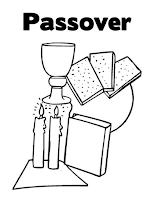In a Binding Ruling Letter dated January 27, 2012, (NY N198401) U.S. Customs and Border Protection ("CBP") classified two of three hockey sweaters, (Item number 1, a “Jacques Plante circa 1957 Canadiens Montreal Wool Sweater” and item number 3, a “1926 Detroit Cougars #7 wool sweater”) under heading 6110, HTSUS, which provides for “Sweaters, pullovers, sweatshirts, waistcoats (vests) and similar articles, knitted or crocheted.” The rate of duty for that classification is 16% ad valorum.
It is now CBP’s position that the two sweaters are collector’s pieces of historical interest, and are properly classified under subheading 9705.00.0070, HTSUS, as “Collections and collectors’ pieces of zoological, botanical, mineralogical, anatomical, historical, archeological, paleontological, ethnographic or numismatic interest: Archaeological, historical, or ethnographic pieces.” The rate of duty is zero.
Comments must he received on or before May 22, 2015.
The reason for the reversal is that, upon reviewing classicauctions.net proof of authenticity, CBP know longer doubted that the two sweaters in question were worn by celebrated playing in games of historic significance.
The sweaters--
Item 1 is described as “Jacques Plante circa 1957 Montreal Canadiens Wool Sweater.” Plante played for the Montreal Canadiens from 1953 to 1963 during which time his team won the Stanley Cup six times, including five consecutive wins. Plante was a Canadian professional ice hockey goaltender. His career spanned from 1947 through 1975 playing for teams like the Montreal Canadiens, the St. Louis Blues, the Toronto Maple Leafs, and the Boston Bruins, with a short stint as coach and general manager for the Quebec Nordiques from 1973 through 197 4. Plante was inducted into the Hockey Hall of Fame in 1978, and was chosen as the goaltender of the Canadiens’ alltime “Dream Team” in 1985. Plante was awarded the Vezina Trophy. The Canadiens retired Plante’s number 1 jersey in 1995.
The background of the item as described by Counsel indicates: (1) the item in question is Plante’s red, white and blue #1 hockey sweater worn during his tenure with the Canadiens, circa 1957, in the midst of Les Habitantes’ (Montreal Canadiens) record Stanley Cup streak, (2) there is no Plante Canadiens’ jersey on display at the Hockey Hall of Fame in Toronto, (3) Plante gave the sweater to a Montreal sports reporter, who preserved it in his personal collection and considered it a prized family possession, and (4) Plante’s game-worn 1957 Montreal Canadiens sweater is a highly desirable museum piece, which might fetch $100,000 or more at auction.
Item 2 is described as “Ken Morrow’s 1980 U.S.A. Olympic Hockey Team Game Worn Jersey.” Morrow played for the New York Islanders from 1980 through 1989, and played 550 regular season games in the National Hockey League (NHL). Marrow was an American professional ice hockey defenseman. Prior to playing for the New York Islanders, Marrow played for the 1980 USA Olympic hockey team that won the gold medal in an event known as the “Miracle on Ice.” The Miracle on Ice was the name given in America to a medal-round in men’s ice hockey during the 1980 Winter Olympics at Lake Placid. Team USA went on to win the gold medal, by winning its last match over Finland, but it was Team USA’s prior victory over the Soviet team, with its amateurs and collegiate players versus seasoned Soviet players, that derived the name – Miracle on Ice. Morrow was inducted into the United States Hockey Hall of Fame in 1995, and won the Lester Patrick Trophy in 1996.
The background of the item as described by Counsel indicates: (1) the item in question is Marrow’s USA Olympic hockey team sweater during the Miracle on Ice game, (2) the United States team, in an upset for the ages, defeated the prohibitively-favored Soviets, and then proceeded to clinch the Olympic Gold Medal in the final game against Finland, (3) Morrow was on the ice as the crucial final seconds ticked off, clearing the puck across the blue line, and assuring the American team of the historic victory, (4) Morrow helped the Islanders to win its first Stanley Cup Championship in 1980, making him the first player to win the Olympic Gold and an NHL championship in one season, (5) Morrow was an integral member of the Islanders’ for an additional three consecutive Stanley Cup Championship teams: 1981, 1982 and 1983, (6) Morrow’s USA jersey has been owned by him since the Olympic games and is now being offered for auction – the jersey to be auctioned is the game-worn original, and (7) the original sweater is extremely valuable as a collector’s piece, and should fetch a very high price at action, due to its role in the most celebrated hockey tournament of the 20th century.
Item 3 is described as the “1926 Detroit Cougars #7 Wool Sweater.” The Detroit Cougars’ #7 wool sweater was owned by Erik Brolin, an original member of the team which made its NHL debut in the fall of 1926. Brolin kept the sweater in his personal collection, where it became a cherished family heirloom that was passed down to his son and subsequently to his grandson.
The background of the item as described by Counsel indicates: (1) the item in question is Brolin’s white and red wool sweater featuring a red Old English “D” on the front, (2) it was game-worn during Detroit’s first season in the NHL, when the team was known as the Cougars -which ultimately became the Detroit Red Wings, and (3) the sweater is an original and not a replica, and is magnificently preserved.



